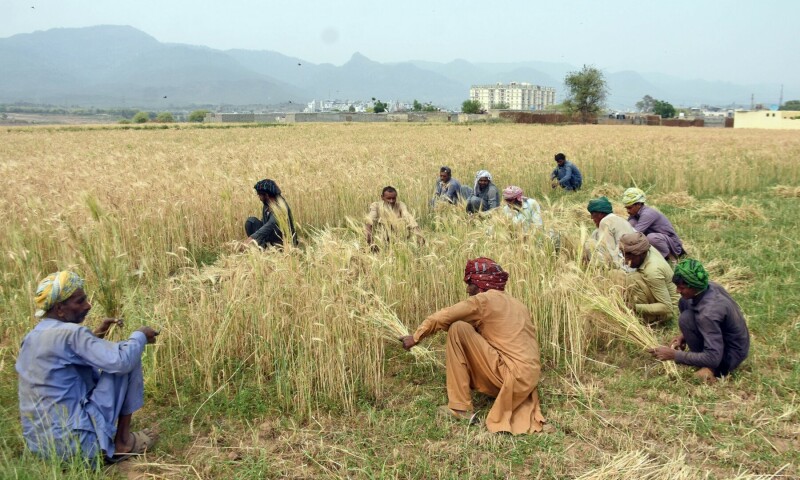ISLAMABAD: Criticising the government’s wheat policy, Pakistan Business Forum on Wednesday warned of a looming crisis and demanded the matter be thoroughly debated by the Council of Common Interests (CCI) immediately.
In a statement, PBF — a non-profit association of country-wide trade and industry — urged the government to immediately reconsider its decision to abolish the wheat support price. It warned of a looming crisis as the harvest season begins and called for bringing the pricing issue before the CCI as it challenged national food security.
PBF Chief Organiser Ahmad Jawad said the government rushed into a free market policy despite having another year to fulfil conditions required under the International Monetary Fund (IMF) programme.
He criticised the absence of a comprehensive policy created in consultation with stakeholders, adding that last year’s poor import decisions already hurt wheat farmers and this year’s hasty approach may deepen their losses.
PBF warns of a looming crisis due to abolition of support price
Mr Jawad noted that the average wheat price in Punjab’s grain markets was around Rs2,500 per maund, while the cultivation cost was Rs3,200 per maund, leading to a consistent loss of Rs700 per maund for the past two years.
He said this pricing gap was one of the key reasons the wheat cultivation target was not met this season.
“Government may realise wheat is a crucial staple food and the leading cereal crop in Pakistan, playing a significant role in the country’s food security and agricultural economy”, he said.
The forum stressed that wheat is central to a farmer’s financial cycle, and undermining it at the start would also negatively impact other crops. It questioned the logic of abruptly ending a support price system that had been in place for over 50 years, warning that the middleman could reap huge profits this time if corrective measures were not taken. Already, end-consumers were getting around Rs5,800 per maund in the form of flour from chakki.
The PBF called for the wheat pricing issue to be brought before the CCI and warned that if neglected, the government may be forced to import wheat again by December.
He recalled that last year, wheat farmers were reeling from the government’s decision to import 70 wheat vessels despite a forecasted bumper crop, which had sparked a backlash and drained over $1bn from the country’s foreign exchange reserves.
That miscalculated decision had caused an outflow of more than a billion dollars at a time when this cash-strapped country needed to save every single dollar, despite the fact that the government could have utilised the strategic reserves as a special arrangement knowing the bumper crop was on its way.
Published in Dawn, April 17th, 2025


